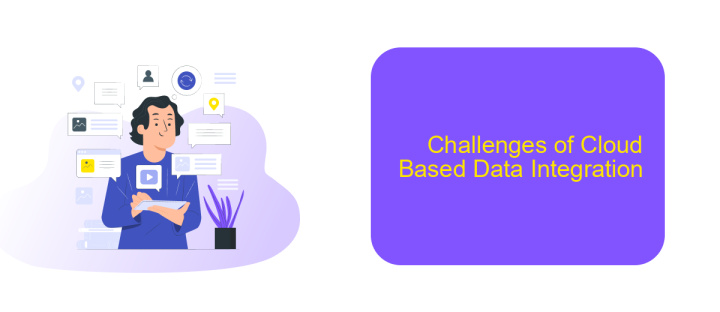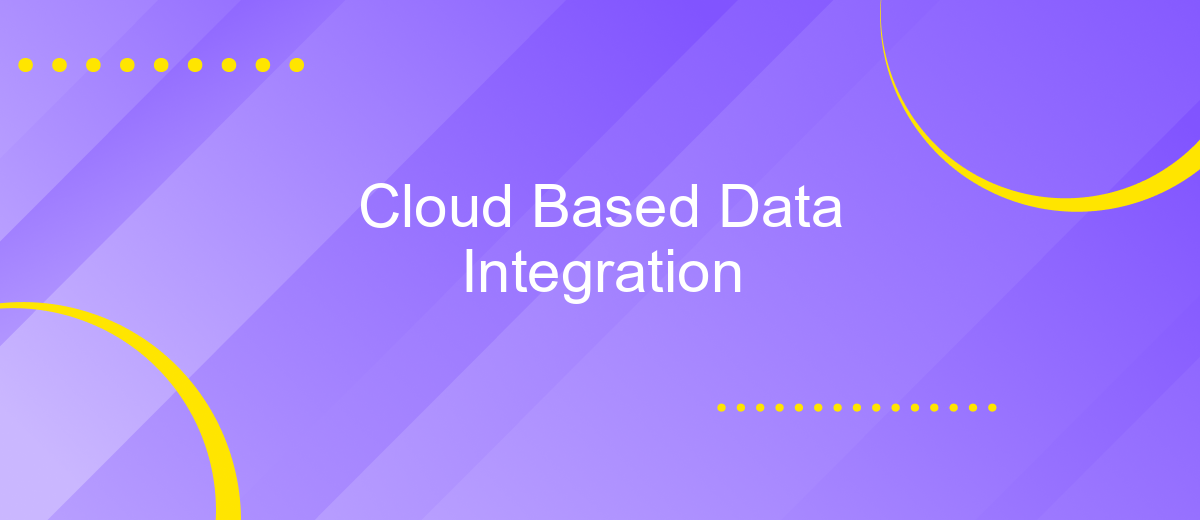Cloud Based Data Integration
Cloud-based data integration is revolutionizing the way businesses manage and utilize their data. By leveraging cloud technologies, organizations can seamlessly connect disparate data sources, streamline workflows, and enhance data accessibility. This approach not only reduces infrastructure costs but also enables real-time data processing and analytics, driving more informed decision-making and operational efficiency. Explore how cloud-based solutions are transforming data integration in today's digital landscape.
Cloud Based Data Integration
Cloud-based data integration is a critical component for modern businesses, enabling seamless data flow between various cloud applications and on-premises systems. This approach helps organizations to unify their data sources, ensuring that information is consistent and up-to-date across all platforms.
- Enhanced data accessibility and availability
- Scalability to handle growing data volumes
- Improved data quality and consistency
- Cost-effectiveness by reducing infrastructure expenses
One of the leading services for setting up cloud-based data integrations is ApiX-Drive. This platform allows users to easily connect different applications and automate data transfer processes without requiring extensive technical knowledge. By leveraging tools like ApiX-Drive, businesses can streamline their operations, reduce manual data entry, and ensure that their data remains accurate and accessible in real-time.
Introduction

In today's rapidly evolving digital landscape, cloud-based data integration has emerged as a crucial component for businesses aiming to streamline their operations and enhance data accessibility. By leveraging cloud technologies, organizations can seamlessly connect disparate data sources, enabling real-time data synchronization and improved decision-making. This approach not only reduces the complexity and cost associated with traditional data integration methods but also provides scalability and flexibility to adapt to changing business needs.
One of the key players in this domain is ApiX-Drive, a service designed to simplify the process of integrating various applications and data sources. ApiX-Drive offers a user-friendly interface and robust features that allow businesses to automate data workflows without the need for extensive technical expertise. By utilizing such services, companies can ensure that their data integration processes are efficient, reliable, and capable of supporting their strategic objectives. As a result, cloud-based data integration is becoming an indispensable tool for modern enterprises seeking to maintain a competitive edge.
Benefits of Cloud Based Data Integration

Cloud based data integration offers numerous advantages that enhance business operations and data management. By leveraging cloud technology, organizations can streamline their data processes, ensuring real-time access and improved collaboration across various departments.
- Scalability: Cloud solutions allow businesses to scale their data integration needs seamlessly, accommodating growth without significant infrastructure changes.
- Cost Efficiency: Utilizing cloud services eliminates the need for expensive on-premises hardware, reducing overall IT costs.
- Data Security: Advanced security measures in cloud platforms ensure that data is protected against breaches and unauthorized access.
- Accessibility: Cloud integration provides access to data from any location, enhancing remote work capabilities and global collaboration.
- Automation: Services like ApiX-Drive facilitate the automation of data integration tasks, reducing manual effort and minimizing errors.
Incorporating cloud based data integration into your business strategy not only enhances efficiency but also provides a competitive edge. With tools like ApiX-Drive, setting up and managing integrations becomes simpler and more effective, allowing organizations to focus on core business activities.
Challenges of Cloud Based Data Integration

Cloud-based data integration presents a unique set of challenges that organizations must navigate to ensure seamless data flow and reliability. One of the primary issues is data security, as sensitive information is transferred across different platforms and networks. Ensuring compliance with data protection regulations and safeguarding against breaches becomes crucial.
Another significant challenge is data consistency and integrity. With multiple data sources and formats, maintaining uniformity and accuracy can be difficult. This often requires sophisticated data validation and transformation processes to align disparate data sets.
- Data Security: Protecting data from unauthorized access and breaches.
- Data Consistency: Ensuring uniformity across various data sources.
- Scalability: Managing growing data volumes efficiently.
- Latency: Minimizing delays in data transfer and processing.
Tools like ApiX-Drive can mitigate some of these challenges by offering automated data integration solutions. ApiX-Drive simplifies the process of connecting various applications and services, ensuring data flows smoothly and securely. By leveraging such tools, organizations can focus more on leveraging their data for strategic insights rather than grappling with integration complexities.
- Automate the work of an online store or landing
- Empower through integration
- Don't spend money on programmers and integrators
- Save time by automating routine tasks
Conclusion
In conclusion, cloud-based data integration has become a crucial element for modern businesses striving for agility and efficiency. By leveraging cloud platforms, organizations can seamlessly connect disparate data sources, ensuring real-time data flow and enhanced decision-making capabilities. The flexibility and scalability offered by cloud solutions enable businesses to adapt quickly to changing market demands and technological advancements.
Services like ApiX-Drive play a significant role in simplifying the integration process by providing user-friendly tools for automating data workflows. With ApiX-Drive, companies can effortlessly set up integrations without extensive coding knowledge, reducing the time and resources required for implementation. As businesses continue to embrace digital transformation, cloud-based data integration will remain a vital component for achieving operational excellence and maintaining a competitive edge in the market.
FAQ
What is cloud-based data integration?
How does cloud-based data integration benefit businesses?
What are common challenges in cloud-based data integration?
How can I automate data integration processes in the cloud?
What should I consider when choosing a cloud-based data integration tool?
Time is the most valuable resource for business today. Almost half of it is wasted on routine tasks. Your employees are constantly forced to perform monotonous tasks that are difficult to classify as important and specialized. You can leave everything as it is by hiring additional employees, or you can automate most of the business processes using the ApiX-Drive online connector to get rid of unnecessary time and money expenses once and for all. The choice is yours!


